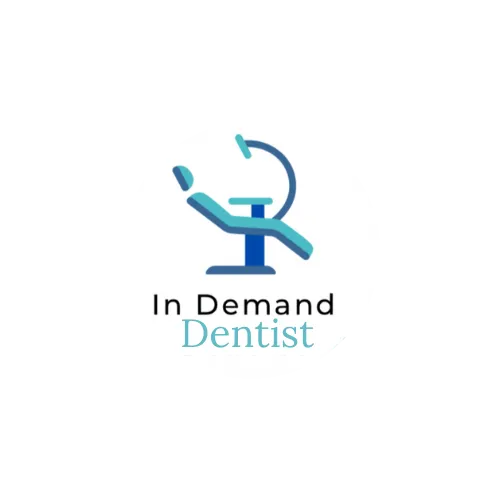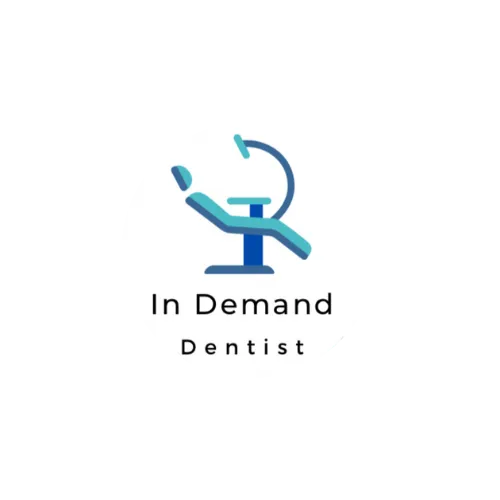How to Get New Patients into Your Dental Office
Discover how you can get more of your idea client with In Demand Dentist
NOT YOUR TYPICAL SOFTWARE
Our Software is Designed For Dentists By Dentist Assistants

We Fill The Gaps
Running a dental practice involves significant overhead costs, including equipment, supplies, staffing, and facility maintenance.
Patient Acquisition and Retention does not have to be one of them! All the perks, one simple fee! The best part, we customize and set up everything for you.
Our Software Features
Our Software is designed with the following capabilities
Automated Appointment Reminders:
Set up automated appointment reminders via text or email to reduce no-shows and keep the schedule running smoothly.
Landing Pages for Special Offers:
Create dedicated landing pages for special dental offers, teeth whitening promotions, or new patient discounts.
Appointment Scheduling System:
Implement an online appointment scheduling system to allow patients to book appointments at their convenience. This improves the overall patient experience and reduces administrative workload.
Review Management:
Manage and request patient reviews. Positive reviews can enhance your practice's online reputation and attract new customers.
Lead Capture Forms:
Create lead capture forms on the website or through targeted campaigns to gather contact information from potential patients interested in specific services.
Text Message Marketing:
Use our SMS marketing features to send appointment reminders, follow-ups, and promotions directly to patients' phones.
Email Marketing Campaigns:
Run email marketing campaigns to keep patients informed about dental care tips, upcoming promotions, and important updates from the practice.
Referral Programs:
Establish referral programs using our software to encourage existing patients to refer friends and family, offering incentives such as discounts on future services.
Social Media Integration:
Connect social media accounts to our software for seamless posting, scheduling, and tracking of social media campaigns to engage with the community and attract new patients.
Educational Webinars or Workshops:
Host educational webinars or workshops on dental health topics and use our software to manage registrations, send reminders, and follow up with attendees.
Client Communication Hub:
Use as a central hub for client communication, storing patient information securely, and maintaining organized records for personalized interactions.
Automated Follow-Up Campaigns:
Set up automated follow-up campaigns to check in with patients after procedures, send post-appointment care instructions, and gather feedback for continuous improvement.
Survey and Feedback Forms:
Create and send out satisfaction surveys or feedback forms to understand patients' experiences and identify areas for improvement.
Segmented Marketing Campaigns:
Utilize segmentation features to target specific patient groups with tailored marketing campaigns, such as age-specific promotions or specialized dental services.
Online Web Chat:
Implement an online chat feature on the practice's website using allowing potential patients to ask questions and get instant responses, enhancing customer service.

How to Attract New Patients into your Dental Practice?
As a dentist, your passion lies in transforming smiles and improving oral health. However, running a successful dental practice requires more than just clinical expertise—it requires a steady stream of patients walking through your door.



How many patients should a dentist see per day?
Discover How We Can Boost Your Practice's Customer Base! Book an Orientation Session to Learn More.

Strategies for Dentists to Sell More of a Specific Treatment
Dentists can leverage technology to sell more of a specific service by implementing targeted marketing campaigns, streamlining communication with patients, and optimizing the patient journey. Here's a step-by-step guide on how dentists can achieve this goal


Simple Solutions to Keep Your Customers Smiling
We offer educational resources and workshops to empower you with the knowledge to keep growing your dental practice. Schedule a consultation to get started.

How Many Patients Should a Dentist See per Day?
Introduction: One of the key questions that dentists often grapple with is how many patients they should aim to see per day. Striking the right balance between patient volume and quality of care is essential for the success and sustainability of a dental practice. In this article, we'll explore factors to consider when determining patient load, the impact of patient volume on practice efficiency and patient satisfaction, and strategies for finding the optimal balance.
Factors to Consider:
Practice Size and Structure: The ideal patient load can vary depending on the size and structure of the dental practice. A solo practitioner may have a different patient capacity compared to a multi-doctor practice with support staff and advanced scheduling systems.
Appointment Duration: The length of appointments for different procedures can significantly influence patient volume. Routine check-ups and cleanings typically require less time compared to complex restorative treatments or surgeries.
Practitioner Skill and Experience: Experienced dentists may be able to see more patients efficiently without compromising quality of care, while newer practitioners may need more time per patient for thorough treatment and consultation.
Patient Needs and Preferences: Consider the demographics and preferences of your patient population. Some patients may prefer shorter wait times and quicker appointments, while others may value personalized attention and unhurried visits.
Practice Goals and Values: Align patient load with the goals and values of the practice. Prioritize quality of care, patient satisfaction, and ethical treatment over maximizing patient volume for financial gain.
Impact of Patient Volume:
Practice Efficiency: Overloading the schedule with too many patients can lead to stress, burnout, and decreased efficiency for both dentists and staff. It's important to maintain a manageable workload to ensure that each patient receives the attention and care they deserve.
Patient Satisfaction: Quality of care and patient experience are paramount in dentistry. Rushed appointments and long wait times can result in decreased patient satisfaction and potential negative reviews, ultimately harming the reputation of the practice.
Clinical Outcomes: Rushing through appointments to accommodate a high patient volume may compromise clinical outcomes and increase the risk of errors or complications. Dentists should prioritize thorough assessments and treatment planning to achieve optimal results for each patient.
Strategies for Finding the Optimal Balance:
Establish Realistic Goals: Set realistic patient load targets based on practice capacity, practitioner skill level, and patient needs. Focus on achieving a balance between efficiency and quality of care.
Implement Effective Scheduling Systems: Utilize advanced scheduling software and protocols to optimize appointment scheduling, minimize wait times, and maximize practitioner productivity.
Prioritize Time Management: Allocate sufficient time for each appointment to ensure thorough examination, treatment, and patient communication. Avoid overbooking and allow buffer time between appointments to accommodate unforeseen delays.
Delegate Tasks: Delegate non-clinical tasks to support staff to free up time for dentists to focus on patient care. Streamline administrative processes and automate routine tasks to improve practice efficiency.
Monitor and Adjust: Continuously monitor practice metrics, patient feedback, and practitioner workload to identify areas for improvement and make data-driven adjustments to optimize patient load.
Conclusion: Finding the right balance between patient volume and quality of care is a dynamic process that requires careful consideration of various factors, including practice size, appointment duration, practitioner skill, patient needs, and practice goals. Dentists should prioritize patient-centered care, efficiency, and clinical excellence to achieve sustainable practice growth and success. By implementing effective scheduling systems, prioritizing time management, and monitoring practice performance, dentists can find the optimal balance and provide exceptional care to their patients.

Contact Us
noelleda@indemanddentist.com
(470) 616-4706
